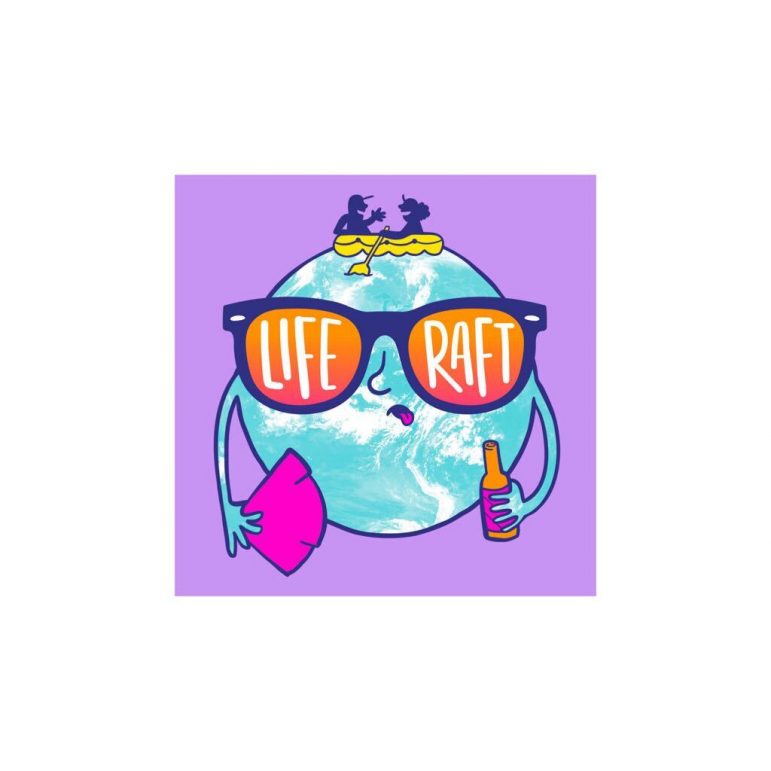Climate Change can be overwhelming to comprehend leaving you with a lot of questions: Is this the new normal for hurricane season? Will it ever get too hot to live here? Have I eaten my last good oyster?
Travis Lux is an environmental reporter for New Orleans Public Radio and co-host of the new podcast Life Raft. Each episode sets out to answer questions about climate change and relieve some of the stress that comes along with all of it.
“The facts are important, but it can pile on and feel a bit gloomy, so we were wondering if we could experiment with a little bit of levity,” Lux said. “And so to that end, my co-host, Lauren Malara, is actually a comedian. So we try to have a little bit of fun while exploring some of these questions.“
We know that climate change is a global issue, of course. But as a reporter in this region, folks are facing a lot of unique issues.
“It really is an issue for the Gulf region. Depending on where you live, you might feel some things more acutely than others. For example, if you live on the coast, you might be a little more concerned about hurricane season and this trend of hurricanes intensifying very quickly at the last minute or about sea-level rise in general. If you live farther inland, you might be more concerned about really heavy rains that cause flooding or extreme heat and how, if we don’t do anything about emissions, the number of really hot days is forecast to increase. So it’s starting to happen and it’s only going to get worse if we don’t do anything.”
The first episode looked at rising temperatures and tackled a listener’s question about whether it’ll ever be too hot to live in New Orleans. What were you able to tell him?
“The science is scary; from what happens to the human body under extreme heat to where we could be in a couple of decades in terms of the number of really hot days. But the good news is, despite those challenges, there are actually things that we can be doing. For example, tree planting is a really powerful way to reduce heat, especially in cities. And that’s something that everyone can do.”
Many of the issues discussed on Life Raft are specific to New Orleans, but a lot of them are relevant to the whole region. What other issues will you tackle?
“We’ve got that heat episode and our latest episode is about oysters. So we take a look at the threats. We’re also going to take a look at mental health; the intersection of mental health and climate change, in addition to other topics like hurricanes and recycling, too. So it’ll kind of run the gamut.”
In regard to the episode on mental health, what have you learned about balancing awareness and anxiety?
“It’s easy to get bogged down on what the future could look like. But I think it’s important to step back and realize that there are some ways to make small changes. So, I mentioned tree planting in the episode about extreme heat. We spoke to Angela Chalk, who is doing her part by getting her neighbors to plant tons and tons of trees in their New Orleans neighborhood. Chalk said progress won’t happen overnight because we didn’t get like this overnight.”
Listener questions drive each episode of Life Raft. How can folks contact you?
“We’re always looking for more questions to explore. Go to our website and there’s a simple form to fill in your question and then we might take it up for an episode.”
This interview has been edited for length and clarity.

